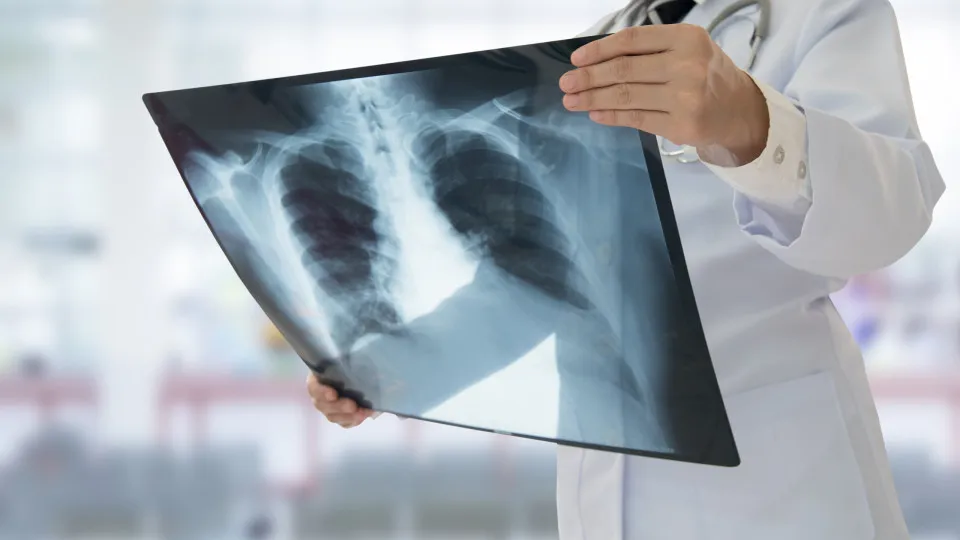
Sofia Pereira, 56, a smoker for 40 years, feels compelled to quit a habit that brings her “guilt” and “daily disturbance,” yet assists her in “difficult situations.” Meanwhile, 62-year-old Alberto Silva, who started smoking at 13, “never seriously considered quitting,” as he “never felt unwell.”
Both residents of Gaia, they differ in their smoking goals but readily agreed to participate in a lung cancer screening initiated by ULSGE in September, which has already examined 105 individuals and aims to screen at least 2,000 over the course of a year.
Eligible participants, as per the guidelines of the Direção-Geral da Saúde, are individuals aged 55 to 74, current or former smokers who quit less than 10 years ago, and who smoked at least one pack per day for 20 years.
ULSGE is reaching out in phases, identifying qualified participants using national databases and primary health care records.
“I pray for nothing to be wrong, for the guilt would be even greater. I belong to the type of smokers who, with every cigarette, torment themselves. I don’t smoke casually. I’ve gradually cut back to one cigarette a day, but life events made me revert, and it’s a snowball effect,” Sofia explained while speaking at a lung cancer screening day organized by ULSGE.
Before her examination, she sought information on smoking cessation programs, admitting, “I can’t do it alone.”
The auto painter said he attended the screening because “there’s no harm in it,” believes “prevention is better than cure,” and noted he met all the criteria from the form received via SMS, but for now, intends to “live one day at a time.”
“Between 60% to 80% of lung cancer cases are detected at an advanced stage when metastases are already present in the body. In such cases, even with advanced treatments, the five-year survival rate is around 5%. When identified early, with small, localized nodules, the 20-year survival rate is 80%,” explained ULSGE Pneumology Service Director Margarida Dias.
Simply put, 80% of these individuals are likely to be alive after 20 years and might die from other causes.
“Lung cancer screening reduces mortality by 25%,” the pulmonologist summarized, noting that before such programs, early lung cancer detection commonly occurred when patients sought hospital care for unrelated accidents or illnesses, such as pneumonia.
The European Commission recommended in 2022 for Member States to launch pilot lung cancer screening projects linked to smoking cessation programs. Croatia was the first in Europe to implement this, two years earlier.
Projects are already underway in Poland, the Czech Republic, the Netherlands, France, Ireland, and Hungary. In Portugal, the subject has been debated across several legislatures, with ongoing discussions on the methodology to adopt.
The most effective test for early lung cancer detection is a low-dose thoracic computed tomography (CT) scan.
Subsequent coordination with the National Health Service is required for treatment access for any findings during the exam.
“We don’t have a magic formula, but it seems the stars aligned, enabling us to launch this program,” noted Margarida Dias, referring to the availability of material, human resources, and personal motivations behind the health institution’s decision to proceed.
Though not a pilot project, extending the program beyond the intended 2,000 participants, depending on resource availability, is not currently planned. The ULSGE, however, would have “clients.”
“The feedback has been very positive. Even people from outside have called requesting to be screened. Individuals who’ve smoked for many years and live in fear of developing lung cancer,” described Inês Marques, Coordinator of the Functional Unit of Diagnostic Radiology.
Emphasizing that this CT is a contrast-free, painless, and quick exam, the coordinator noted the primary aim is early detection of lung cancers when they’re still small and treatable, though it can also identify other conditions.
Beyond lung cancer, the most frequently found diseases are coronary artery calcification, where heart arteries become clogged, and emphysema, where the lung develops holes from smoking, affecting oxygen delivery to the blood.
“A positive result indicates changes on the CT scan, lesions with some suspicion for lung cancer. It doesn’t confirm lung cancer but necessitates further study to rule it out. Positives are swiftly reviewed in a pulmonology consultation. If confirmed, cases are referred to our multidisciplinary thoracic tumor unit for treatment. Other detected conditions are also addressed,” she explained.
Thus, both Margarida Dias and Inês Marques refer to this as a screening program with “superpowers,” reflecting positively on its progress.
“Without this screening, certain diseases wouldn’t be promptly detected. Symptoms may be few or progressively unnoticed by patients. This screening reduces lung cancer mortality and significantly impacts cardiovascular disease. Additionally, smoking cessation benefits patients with both lung and heart diseases,” they noted.
According to the Global Cancer Observatory, lung cancer is the deadliest worldwide, causing over 1.8 million deaths annually.
In Portugal, lung cancer accounts for roughly 5,100 annual deaths, as reported by the Associação Portuguesa de Luta Contra o Cancro do Pulmão (Pulmonale).




